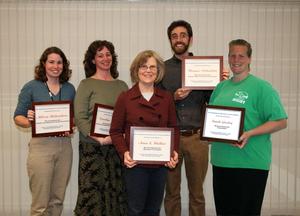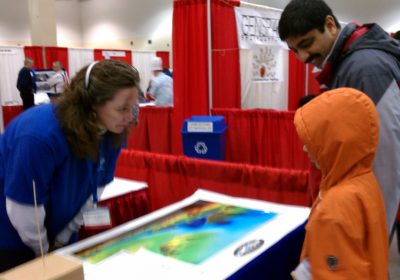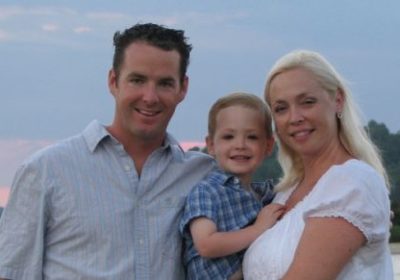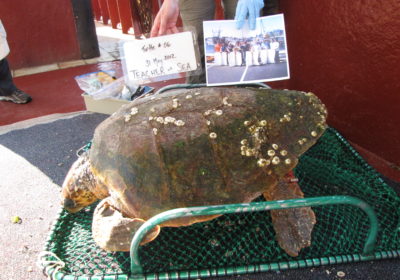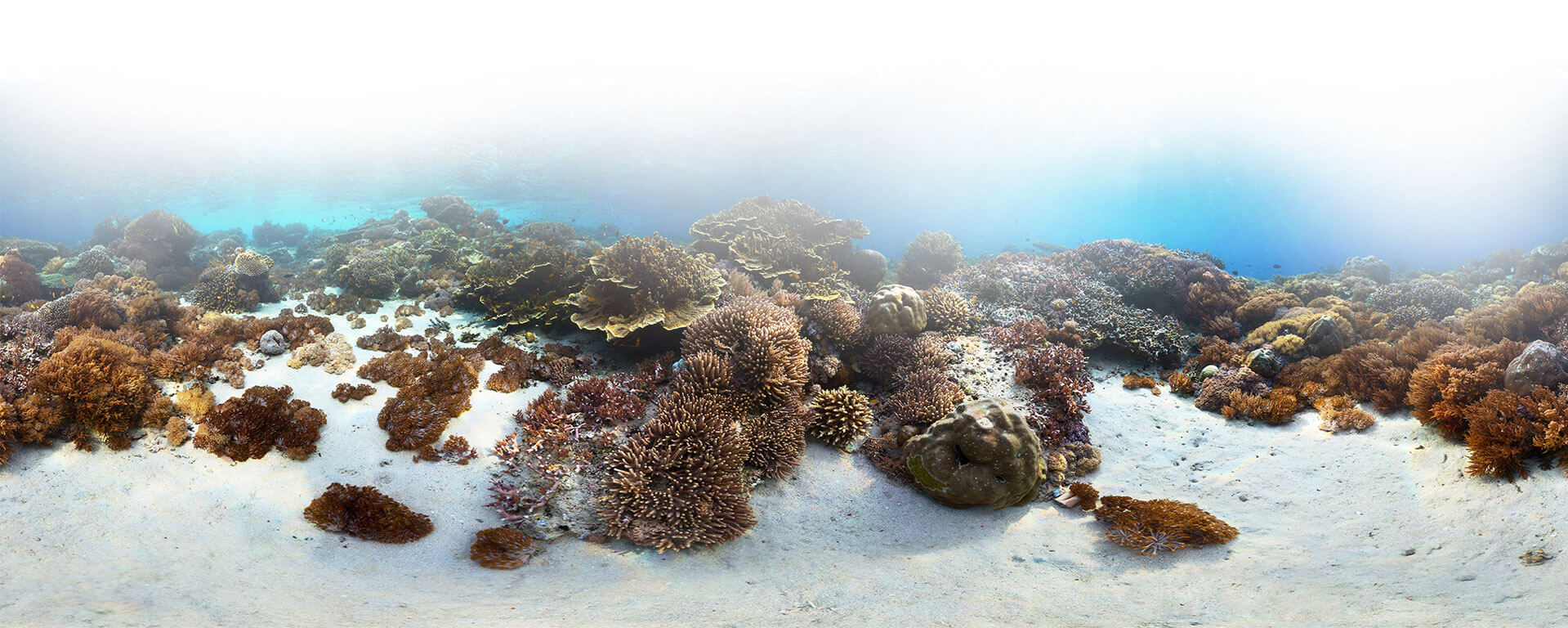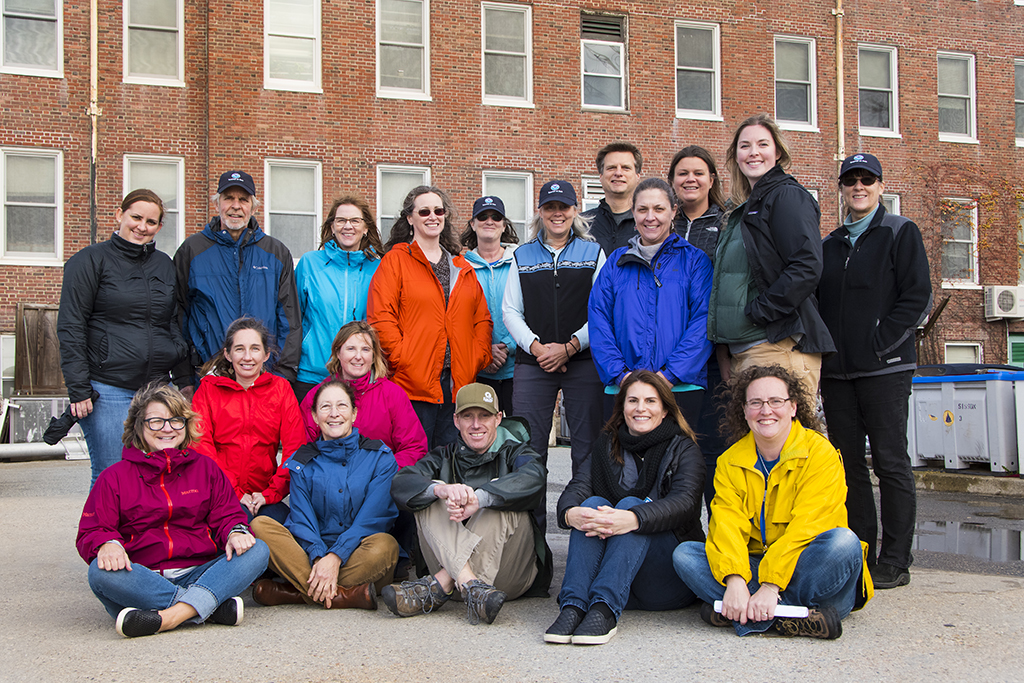
New England TASA Explore Ocean Science in Woods Hole, MA
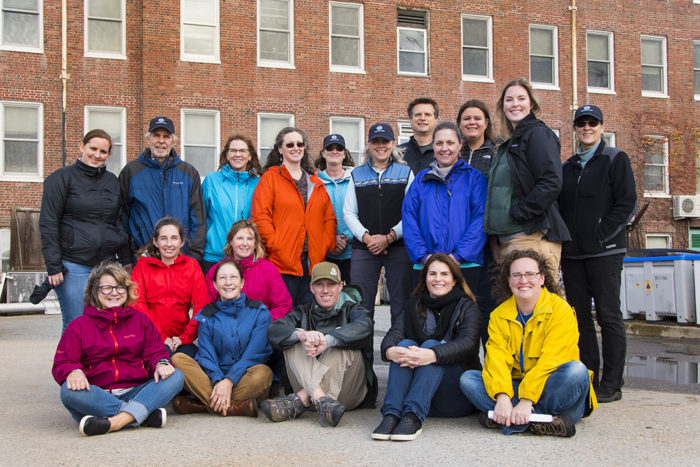
New England TASA (Back row L-R) Victoria Cavanaugh, Frank Hubacz, Kathleen Gibson, Caroline Singler, Ellen O’Donnell, Julia West, Roy Moffitt, Michele Cusack, Tiffany Risch, Kimberly Scantlebury-Galambos, Laura Rodriguez; (Second row) Emily Whalen, Beth Lancaster; (Front row) Stacey Klimkosky (TAS Program Assistant), Amy Pearson, Bryan Hirschman, Jenn Annetta (TASAA Staff), and Grace Simpson (Woods Hole Sea Grant). Photo Credit: Ryan Hawk
On November 3, 2018, fifteen members of the New England Teacher at Sea traveled to Woods Hole, MA—a hub of ocean science research facilities on Cape Cod. A blustery nor’easter did not deter these hearty New England teachers from participating in day long workshop at the Woods Hole Oceanographic Institution (WHOI) Ocean Science Discovery Center. The purpose of this workshop was to provide TASA in New England with an opportunity to network with one another; share their best practices through a lesson share; engage in hands-on marine science and engineering opportunities; and learn from scientists and ocean science educathttp://www.whoi.edu/ors.
Although only a day long, the workshop provided numerous opportunities to network and learn about ocean science related topics. The Woods Hole Sea Grant, a collaboration between National Sea Grant College Program of the National Oceanic and Atmospheric Administration and the Woods Hole Oceanographic Institution (WHOI), served as home base for the day of learning.
Grace Simpkins, Sea Grant Educator, presented a hands-on model workshop about the migration of Atlantic salmon smolt downstream using authentic telemetry data from the field. An extension activity challenged the teachers to use LEGO building blocks to construct a dam that would allow salmon to successfully navigate the obstruction with a bypass.
Robert Reynolds of the Zephyr Education Foundation provided a series of engaging marine science opportunities. The Zephyr Education Foundation has an Interactive Topographic Modeling System, also known as an Augmented Reality Sandbox. Teachers collaborated and created coastal ‘scapes’ and experimented with making and observing the effects of sea level rise, storm surge and tsunamis. The Foundation also has a collaborative agreement with WHOI. Two large touch tanks provided alumni with time to examine an excellent collection of local sea life close-up.
Participants in the workshop cited one of the most beneficial facets of the day was the opportunity to network with one another. Many of the teachers have participated in past NETASA workshops and have fostered their regional working relationships long after their conclusions. Lesson sharing continues to be a way for teachers to bring their best tried and true practices to the table.

